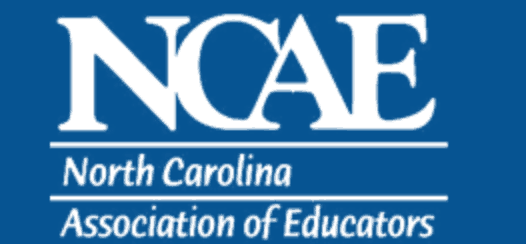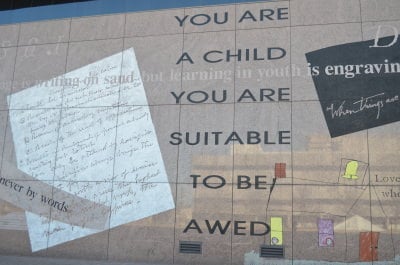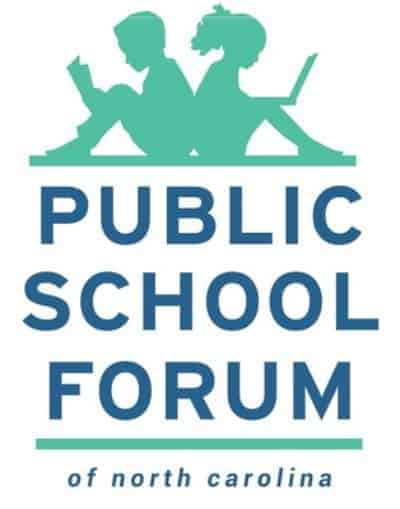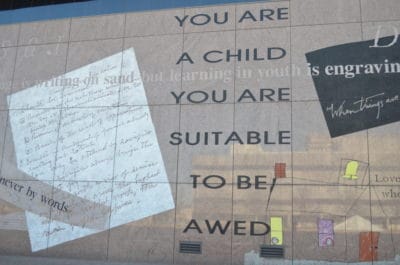
The following is a press release from the NCAE
Seven North Carolina parents, supported by the North Carolina Association of Educators (NCAE) and the National Education Association (NEA), filed a lawsuit in Wake County Superior Court this morning challenging the constitutionality of North Carolina’s private school voucher program.
Officially known as “Opportunity Scholarships,” the North Carolina private school voucher program provides $4,200 per year to pay for part of the tuition at a private school. Private schools funded through the Program are subject to almost no meaningful requirements. They are not required to provide instruction on any academic subjects, can be operated by entities with no educational experience, can hire unqualified teachers, and have no obligation to improve student performance in any measurable way. Since the Program was first implemented, the state has failed to provide even the minimal oversight that the statute requires.
Tamika Walker Kelly, president of NCAE and one of the plaintiffs on the lawsuit, said vouchers siphon money from public schools already strapped for cash. “Vouchers for private schools are an affront to a state that has a long and cherished history of public education,” said Walker Kelly, a teacher from Fayetteville with a son in the public school system. “Using public money to pay for private schools is part of a broad assault on public schools and on our state constitution.”
The voucher program has expanded dramatically since it was initially implemented in 2013. In the 2019-2020 school year, the State Education Assistance Authority provided 12,284 vouchers to private schools. Many participating schools openly admit to discriminating on the basis of religion, require students to sign statements affirming particular religious beliefs, and reserve the right to discipline students who fail to attend religious services or whose beliefs deviate from the school’s official religious doctrine. Schools are free to provide no education in non-sectarian subjects, and instead focus exclusively on inculcating religious beliefs. Many schools also discriminate on the basis of sexual orientation and require students to maintain religious beliefs condemning homosexuality, same-sex marriage, and gender non-conformity.
“Ask any educator – the professionals who know the names of the students in the classroom – and they will tell you that if we are serious about every student’s future, we need to do what we know works to improve our children’s education. North Carolina students deserve neighborhood public schools that have inviting classrooms, a well-rounded curriculum, updated textbooks, class sizes that are small enough for one-on-one attention, and support services such as health care, nutrition, and after-school programs for students who need them,” said National Education Association President Lily Eskelsen García. “Unfortunately, vouchers do nothing more than starve already scarce funding from the public schools that 90 percent of North Carolina students attend, and give them to private schools that are unaccountable to parents and taxpayers. With almost complete autonomy on how they operate and no oversight or recourse when it comes to discrimination against students, private schools that receive vouchers can pick and choose which students they want and which students they’ll turn away. North Carolina should do what is best for students and reject vouchers.”
Rivca “Rikki” Rachel SaNogeuira, one of plaintiffs in the case, is Jewish, and is raising her daughter in the Jewish faith and tradition. Many schools funded through the Program only admit Christian students. SaNoegueira is concerned about the way vouchers are advertised to the public. “They sell these vouchers as a ‘choice’ for parents, but they are not a choice for my family,” SaNoeuira said. “It is galling that my tax dollars are funding private schools where my family is not welcome because of our faith.”
The North Carolina State Constitution includes a bar against religious discrimination that does not appear in the U.S. Constitution: in North Carolina, no person shall “be subjected to discrimination by the State because of race, color, religion, or national origin.” Our state constitution also provides: “All persons have a natural and inalienable right to worship Almighty God according to the dictates of their own consciences, and no human authority shall, in any case whatever control or interfere with the rights of conscience.” The complaint argues that the State violates these commands when it funds schools that discriminate on the basis of religion, religious beliefs, and sexual orientation.
Plaintiff Amanda Howell lives in Randolph County, where every private school is a Christian school, and many have explicit policies discriminating against non-Christians. Howell is not a Christian. She is concerned that most children will be left in public schools with depleted resources, while those with vouchers will be enrolled in private schools with no accountability. “I just don’t think I should have to sacrifice my personal beliefs for my child to get an education,” said Howell. “There isn’t a single non-religious private school in my entire county. My tax dollars are paying for these vouchers, but I cannot use them because there is literally nowhere for me to spend it. My son has special needs that local public schools could not accommodate, but maybe if my local school had the money that is being spent on these vouchers, they would be able to help more children who need it.”
“We are grateful to our board member John Sherry and his family for challenging this state program that permits public funding to support private schools that may teach anti-LGBTQ curriculum and discriminate against LGBTQ students and educators,” said Kendra R. Johnson, Executive Director of Equality NC, a social justice organization dedicated to securing equal rights and justice for lesbian, gay, bisexual, transgender, and queer (LGBTQ) North Carolinians. “Taxpayer funds should support safe and equitable learning that reinforces resilience, not classrooms that harm young people, especially Black and brown LGBTQ students who are already facing disproportionate risk of pushout, bullying, and violence.”
The Plaintiffs are represented by Patterson Harkavy LLP, a North Carolina law firm that focuses on civil rights and workers’ rights.
A copy of the complaint can be found here, and a list of the plaintiffs can be found here.
To schedule an interview with a plaintiff, please contact Paul Smith at Patterson Harkavy LLP at 919-942-5200.
NCAE is the state’s largest education advocacy organization for public school employees and represents active, retired, and student members.
Recommended reading



